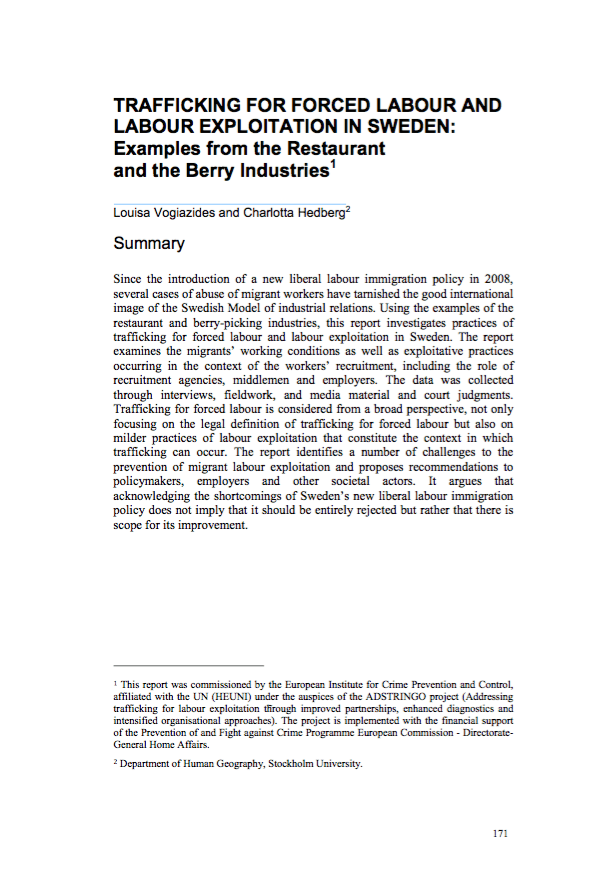
Trafficking for Forced Labour and Labour Exploitation in Sweden: Examples from the Restaurant and the Berry Industries
Since the introduction of a new liberal labour immigration policy in 2008, several cases of abuse of migrant workers have tarnished the good international image of the Swedish Model of industrial relations. Using the examples of the restaurant and berry-picking industries, this report investigates practices of trafficking for forced labour and labour exploitation in Sweden. The report examines the migrants’ working conditions as well as exploitative practices occurring in the context of the workers’ recruitment, including the role of recruitment agencies, middlemen and employers. The data was collected through interviews, fieldwork, and media material and court judgments. Trafficking for forced labour is considered from a broad perspective, not only focusing on the legal definition of trafficking for forced labour but also on milder practices of labour exploitation that constitute the context in which trafficking can occur. The report identifies a number of challenges to the prevention of migrant labour exploitation and proposes recommendations to policymakers, employers and other societal actors. It argues that acknowledging the shortcomings of Sweden’s new liberal labour immigration policy does not imply that it should be entirely rejected but rather that there is scope for its improvement.
